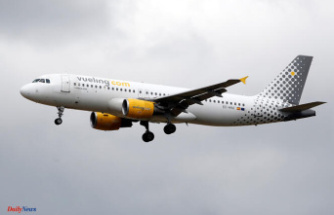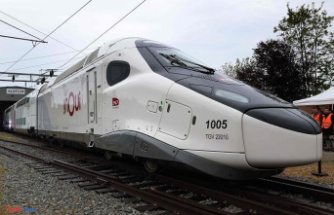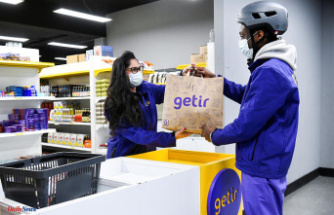From this Monday, April 15, technical inspection is now mandatory for motorcycles, scooters, carts and even quads. If these category L vehicles were registered before January 1, 2017, the first check must be carried out no later than December 31, 2024.
Nearly 2.5 million people are expected to carry out their first regulatory technical inspection from 2024, according to the organization representing professionals in the sector, Mobilians.
Brakes, handlebars, lights, leaks, tires: the check, which will be valid for three years, covers 78 points, a little less than for cars. Control of noise, but also of vehicle braking, often bypassed by scooters, will not be effective until the summer of 2025. All category L vehicles must also pass the test in the event of resale. This measure has already pushed many motorcyclists to resell their machine before the deadline, which is helping to boost the second-hand market in the first quarter of 2024 (6% over one year), according to insurer Solly Azar.
These new technical controls are contested by many motorcyclists, who gathered on Saturday and Sunday throughout France to make their discontent heard. There were, according to the Ministry of the Interior, more than 38,450 demonstrators in total during the weekend, including 7,000 in Paris on Saturday, according to the Ministry of the Interior. The organizers counted 10,000 in the capital.
Bikers denounce “a racket”
While the measure is supposed to increase safety, this argument is refuted by bikers. The general delegate of the French Federation of Angry Bikers (FFMC), Didier Renoux, insists in particular that accidents are generally not due to the condition of the vehicle, well maintained by the bikers, but rather to the state of the pavement.
“It’s pure and simple racketeering,” denounced Isabelle Lebret, member of the French Federation of Angry Bikers (FFMC), on Saturday. The price of these checks is also the subject of the wrath of bikers. If it is set freely by the centers for each category of vehicle, it should still exceed 50 euros, despite the promise of former Minister of Transport Clément Beaune. In June 2023, the latter assured that the visit “will cost less than 50 euros”.
It is a European directive dated April 2014 which obliges member states to establish this technical control. Numerous appeals will have delayed its application in France, even though the system was put in place across almost the entire European continent before the deadline of January 1, 2022.
In France, a first decree was issued by the government in 2021, before Emmanuel Macron buried it, anxious not to “annoy the French”. The government then announced that it would favor “alternative measures”, such as awareness campaigns. It finally had to give in in 2023, by decision of the Council of State.
MEPs call for “moratorium”
But deputies from the presidential coalition asked the Ministry of Transport for a “moratorium” on this technical inspection, proposing other solutions. They have not had a response yet. “Even if I would like to comply, we cannot find any technical control center,” assured Agence France-Presse the president of the law committee, Sacha Houlié (Renaissance), who himself heads a Yamaha motorcycle. “I’m going to do my annual maintenance, like every year. I don’t know any motorcyclist who doesn’t do it,” the MP assured.
Since the confirmation of the inspection in October 2023, the technical inspection centers have nevertheless gone into overdrive to receive the necessary approval. Not all of France is covered, but almost half of the centers are ready, or 3,000 inspectors, according to the technical inspection federation.
In Spain, since the introduction of technical inspections for all two-wheelers in 2006, mortality has fallen sharply for moped drivers, but not among motorcyclists, according to the federation of Spanish inspectors; 17% of two-wheelers inspected in 2022 had to undergo a second inspection, and half of these suffered from major faults. Most of the defects concerned lighting, pollution or noise.












